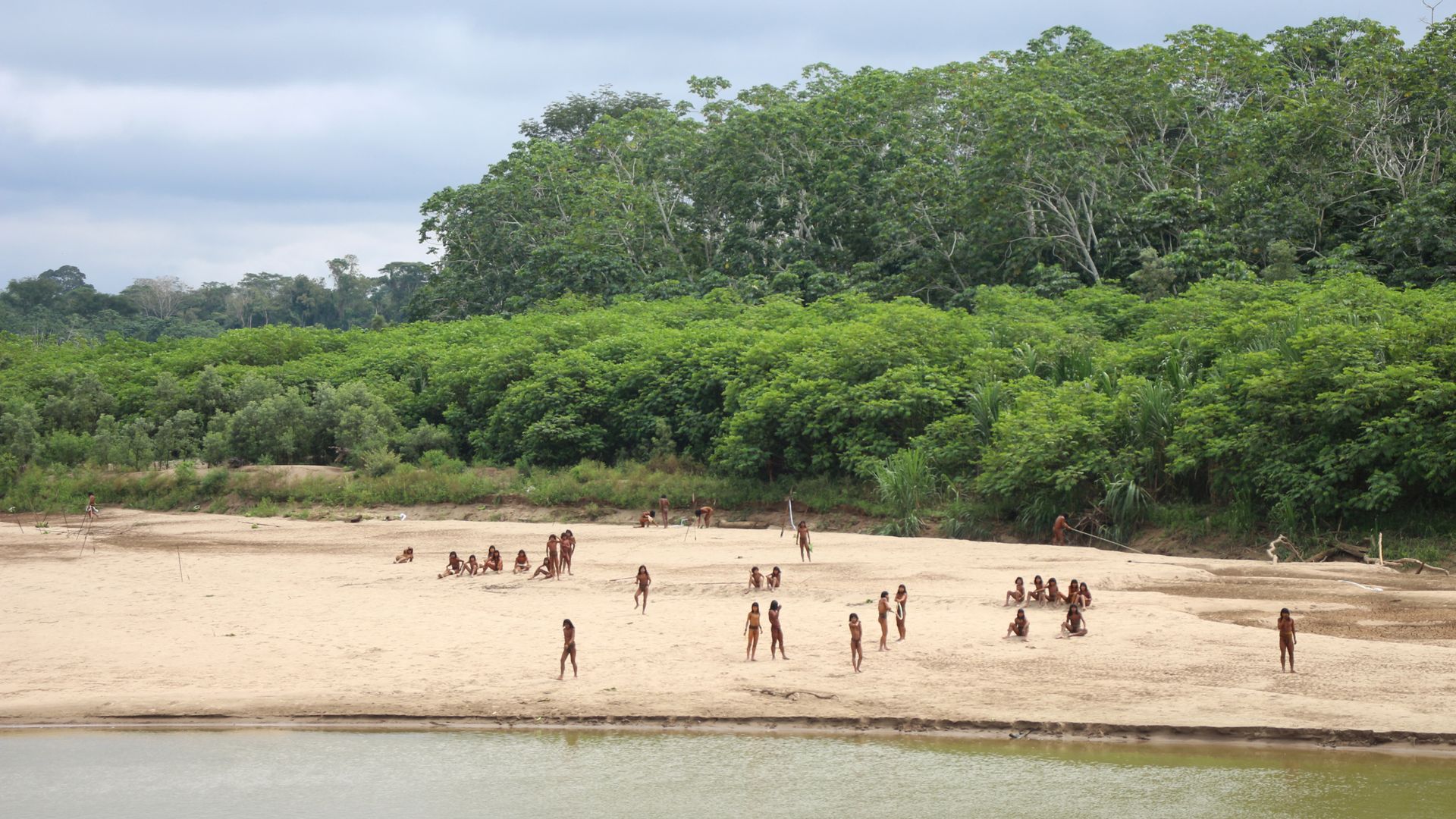Two loggers have been killed in a bow and arrow attack after allegedly encroaching the land of the uncontacted Mashco Piro indigenous tribe deep in Peru’s Amazon.
Tensions between loggers and tribes are on the rise, according to a rights group known as Fenamad, which defends the rights of the country’s indigenous people.
Fenamad, which represents 39 indigenous communities in the Cusco and Madre de Dios regions in southeastern Peru, said two other loggers in the attack were missing and another was injured, with rescue efforts under way.
The incident took place on 29 August in the Pariamanu river basin while loggers were expanding their passageways into the forest and came into contact with the reclusive and renowned territorial tribe.
“The Peruvian state has not taken preventive and protective measures to ensure the lives and integrity of the workers who have been gravely affected,” Fenamad said in a statement on Tuesday.
The group said the attack happened around 15 miles (25km) from the site of a July incident, when the Mashco Piro also attacked loggers.
Fenamad said in their statement that even though they advised the government of the risk of a rise in violence, nothing has been done.
“It’s a heated and tense situation,” said Cesar Ipenza, an Amazon-based lawyer who specialises in environmental law in Peru.
“Undoubtedly, every day there are more tensions between indigenous peoples in isolation and the different activities that are within the territory that they ancestrally pass through.”
Read more:
Rare video of uncontacted tribe shows members emerging from Amazon rainforest
Rare footage of uncontacted tribe shows threat
The mystery of the world’s uncontacted tribes
Keep up with the latest news from the UK and around the world by following Sky News
Be the first to get Breaking News
Install the Sky News app for free
In 2022, two loggers were shot with arrows while fishing, one fatally, in an encounter with tribal members.
In January, Peru loosened restrictions on deforestation, which critics dubbed the “anti-forest law”.





